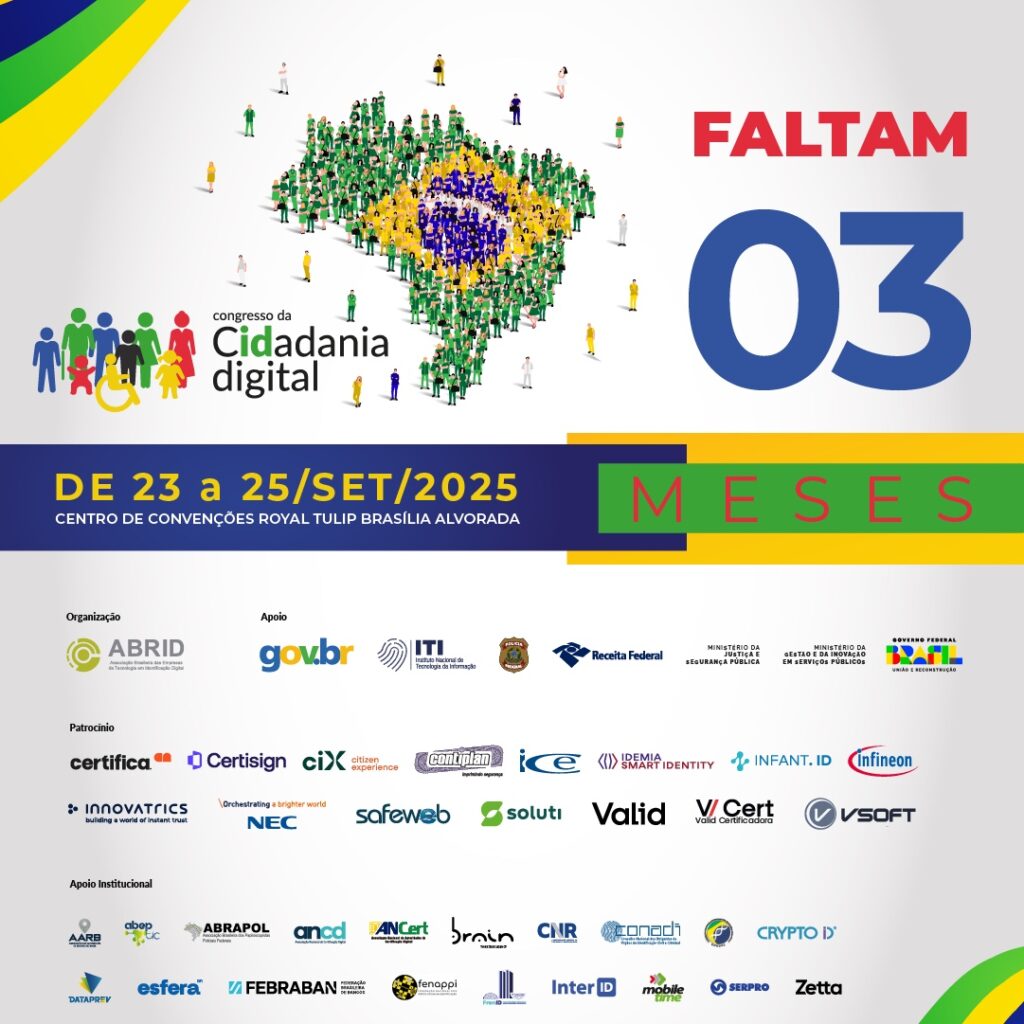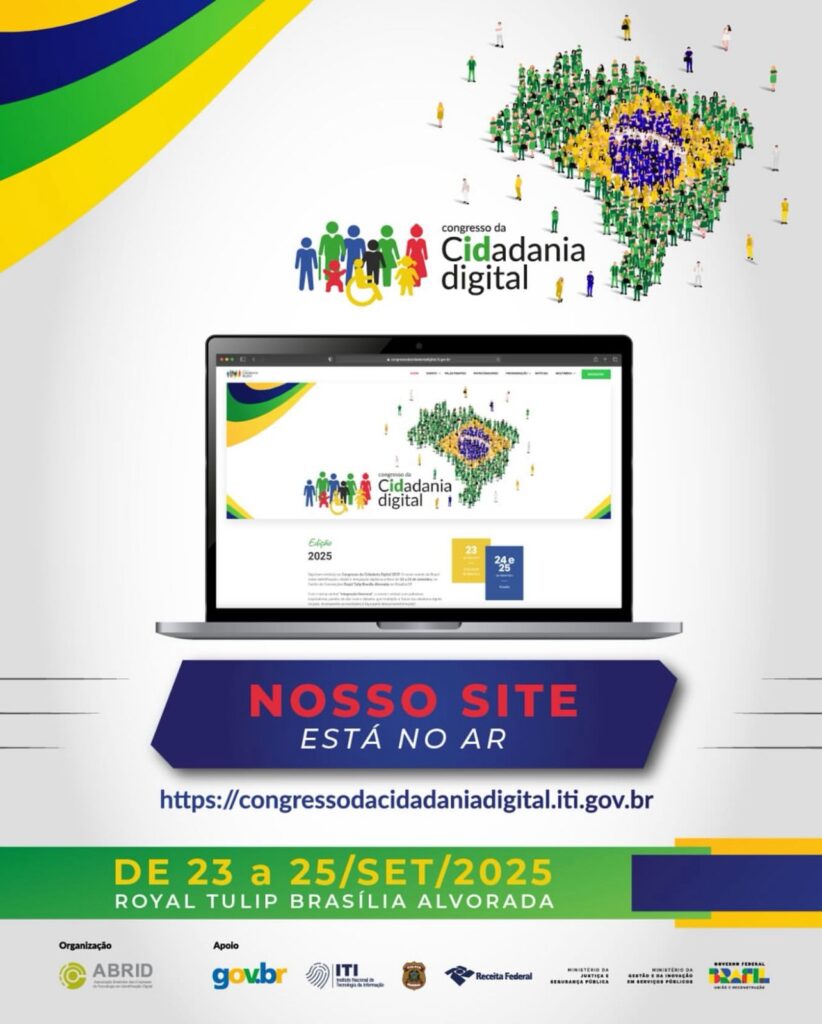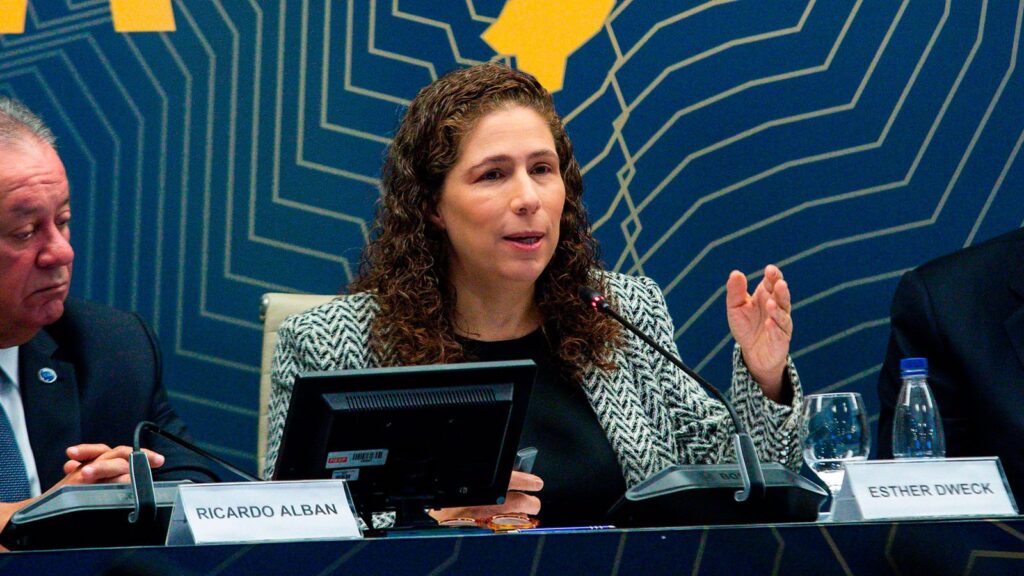Digital Citizenship Congress 2025 – São Paulo Stage highlights advances in Brazilian civil identity and digital security

The city of São Paulo hosted, on July 30, the preliminary stage of the Digital Citizenship Congress 2025.
MGI presents advances of the new National Identity Card at the Digital Citizenship Congress in São Paulo

With more than 30 million documents issued in the country, including 4 million in São Paulo, the CIN is consolidating itself as the foundation for the integration of public and private services across the entire national territory.
Countdown: 7 days to go!

On July 30, the São Paulo Stage of the Digital Citizenship Congress 2025 will take place – a strategic meeting to discuss the future of civil identification in Brazil. Authorities, experts, and public and private institutions will come together to debate solutions focused on security, modernization, and digital integration. This initiative marks the beginning of the preparatory agenda for DCC 2025 and reinforces the joint efforts of identification agencies in building a safer, more efficient, and inclusive digital citizenship. Check out the program:congressodacidadaniadigital.iti.gov.br/2025/programacao/programacao-sao-paulo 🚨 Invitation-only event.
3 months to go until the 2025 Digital Citizenship Congress

Em exatos 3 meses, Brasília sediará o Congresso da Cidadania Digital 2025, o maior evento brasileiro dedicado à discussão sobre identidade, inovação, integração nacional e acesso digital aos direitos.
The official website of the Digital Citizenship Congress 2025 is now live!

Now you can access the new portal for the biggest event on digital citizenship and identification in Brazil.
Meet those who are with us at the 2025 Digital Citizenship Congress.

It is with great pleasure that we present the institutions standing by our side in building the 2025 edition of Brazil’s largest event on citizenship and identification.
Minas Gerais reaches the milestone of three million National Identity Cards issued.
The number already surpasses the entire population of Belo Horizonte and is the result of efforts to expand issuance centers and reduce service time.
ABRID joins the National Digital Government Strategy Committee

The group will be responsible for monitoring the implementation of the ENGD and proposing improvements to strengthen digital transformation in the public sector.
Esther Dweck at Fiesp: State transformation is underway and goes beyond administrative reform

The Minister of Management emphasized that the government seeks to modernize public administration through dialogue, transparency, and valuing public servants, without reducing the role of the State.
Children and Teenagers Set National Record for Issuance of the New National Identity Card (CIN)

Trust in New Technologies and the Need for First-Time Issuance Drive Youth Adoption

